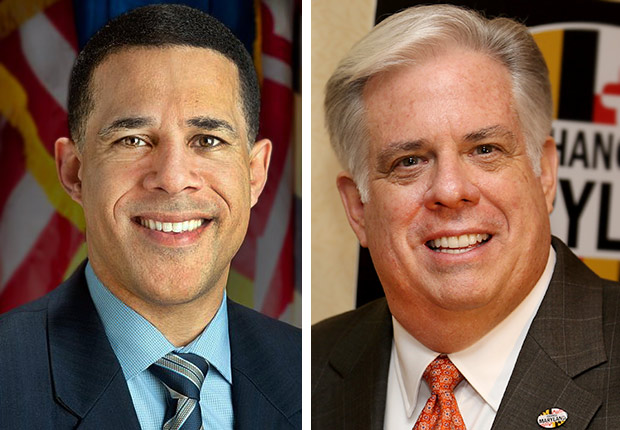AARP Hearing Center

By Effie Dawson
The two candidates for governor of Maryland—Lt. Gov. Anthony Brown, a Democrat, and businessman Larry Hogan, a Republican—have different plans for issues important to older voters, including utility rates, state pensions, consumer protection and caregiving.
Each candidate was interviewed by the AARP Bulletin. Here are some responses:
- Utilities. Brown, 52, would like to reduce the amount of energy that utility companies have to import to the state. He intends to explore additional power sources within Maryland, such as wind, solar and natural gas.
Hogan, 58, said he would support the most cost-effective energy and the elimination of “hidden taxes,” such as surcharges to upgrade infrastructure.
- Pensions. Hogan has said he would eliminate state taxes on veterans’ and law enforcement officers’ pensions and, when the government is running more efficiently, would consider doing the same for all pensions.
Brown said the state pension program is stronger than when he and Gov. Martin O’Malley (D) took office, after cuts to benefits for new employees shored up the system in 2011. But the state diverted $200 million from the program to the general fund this year. Brown said diverting funds will not happen if he is governor.“Pension dollars will be used for the intended purpose of providing for the current and future benefits of our pensioners,” he said.
- Consumer protection. Brown said he was instrumental in helping pass the 2010 Maryland False Health Claims Act to fight Medicaid abuse and has long been committed to fighting fraud and abuse.
Hogan said that a state program already provides tools to fight financial exploitation but that agencies have been lax on enforcement.
- Caregiving. Both candidates vowed to work with advocacy groups to identify caregiving and caregiver needs. Brown said his work on implementation of the Affordable Care Act and several “aging in place” measures demonstrates his commitment to providing housing and caregiving choices for older people.
Hogan criticized the current administration for failing to inspect 55 percent of assisted-living facilities. He said his business approach to government would reduce waste and free up money to increase inspections and identify ways to assist caregivers.
Hank Greenberg, AARP Maryland state director, called on the next governor to take a broader approach to the needs of older citizens. “There does not seem to be a comprehensive plan for dealing with and recognizing an older population,” he said.
Older residents need a wide variety of services, he said, from caregiver supports to recreational, cultural and social programs.
Both candidates believe they have a keen sense of the needs of older citizens.
“I think the important issues for seniors are not too different from the issues that face all Marylanders,” Brown said. Older voters tell him that politicians insist on coming to senior centers and talking about a narrow range of issues.
Brown said he hears this message from older voters: “Talk to us about public education and housing options and safe neighborhoods and jobs, because we’re as much interested in the well-being of our children and grandchildren as we are with our own well-being.”
Hogan said older voters tell him they want to stay in Maryland, close to their families, but they can’t afford it. He said tax cuts and government efficiency would make a difference.
“We’ve balanced the budget on the backs of seniors and others on fixed incomes. I want to try to change that,” Hogan said.
For more information on state and federal candidates’ positions, consult the AARP voter guide at aarp.org/yourvote. AARP does not endorse candidates, contribute to campaigns or favor political parties.
Effie Dawson is a writer living in Arnold, Md.































































